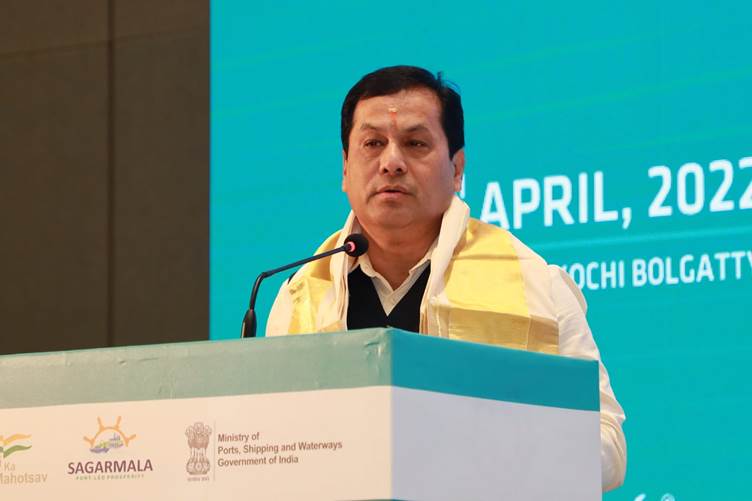The move is part of India's transformative efforts on the innovative and new technology front on green energy, sustainable cost-effective alternate fuel front.

The Ministry of Ports, Shipping and Waterways decided to develop and build the first indigenous Hydrogen Fuelled Electric Vessels at Cochin Shipyard Limited, kickstarting the efforts of the country towards green shipping.
At the Green Shipping In India - 2022 workshop, organised by the Ministry of Ports, Shipping and Waterways, jointly with Cochin Shipyard Limited and The Energy and Resources Institute, Sarbananda Sonowal, Union Minister for Ports, Shipping & Waterways unveiled the Government's plan for building Hydrogen Fuelled Electric Vessels keeping pace with the Global Maritime Green Transitions.
The move is part of India's transformative efforts on the innovative and new technology front on green energy, sustainable cost-effective alternate fuel front.
Hydrogen Fuel cells can be used in a wide range of applications, including transportation, material handling, stationary, portable, and emergency backup power applications. Fuel cells operating on hydrogen fuel are an efficient, environmentally-friendly, zero emission, direct current (DC) power source already applied to heavy duty bus, truck, and train applications, and are now under development for marine applications.
He stated that the project would be carried out by Cochin Shipyard Limited in collaboration with Indian partners and the ground work in this regard have already begun, wherein Cochin Shipyard Limited has partnered with KPIT Technologies Limited and Indian developers in the areas of Hydrogen Fuel cell, power train and Indian Register of Shipping for developing rules and regulation for such vessels. The Hydrogen Fuel Cell Vessel based on Low Temperature Proton Exchange Membrane Technology (LT-PEM) called Fuel Cell Electric Vessel (FCEV) is expected to cost around Rs. 17.50 crores of which 75% would be funded by the Government of India.
The development of Hydrogen Fuelled Electric Vessels is considered as a launchpad for the country to tap the vast opportunities lying in the Coastal & Inland vessels segment both nationally and internationally. This project is expected to augment the efforts of the nation in achieving the Prime Minister's ambitious target of becoming carbon neutral by 2070 and also in complying with the standards set by International Maritime Organization (IMO) that envisages a reduction in carbon intensity of international shipping by at least 40% by 2030 and progressively to 70% by 2050.
Apart from the Minister of Ports, Shipping and Waterways, Shantanu Thakur, Minister of State for Ports, Shipping and Waterways, Dr Sanjeev Ranjan - Secretary, MoPSW, Amitabh Kant, CEO NITI Aayog, Dr Vibha Dhavan, Director General (TERI), Jose Matheickal, Head, Global Partnerships & Projects, IMO, Christian Valdes Carter, Country Director, Innovation Norway and Madhu S Nair, CMD, Cochin Shipyard Ltd were the other dignitaries who took part in the session.
Subscribe to our newsletter & stay updated.